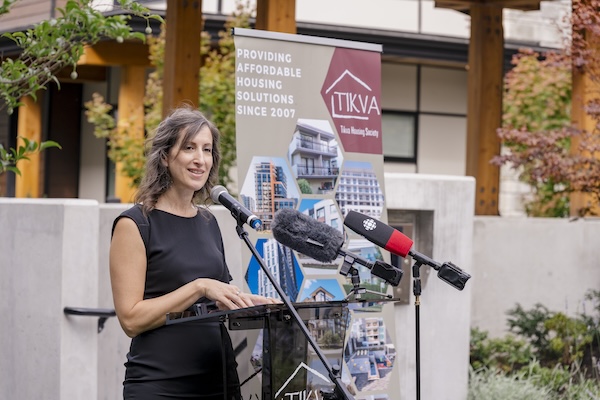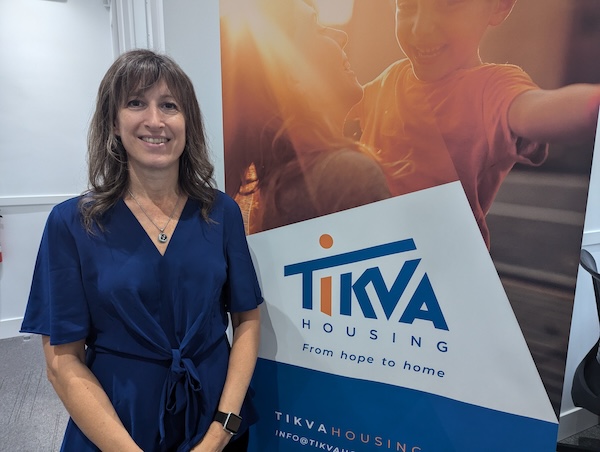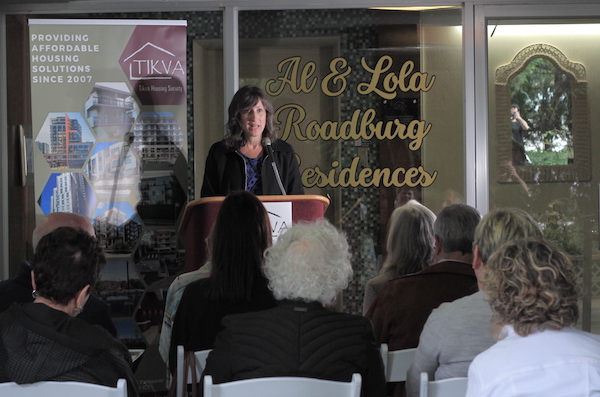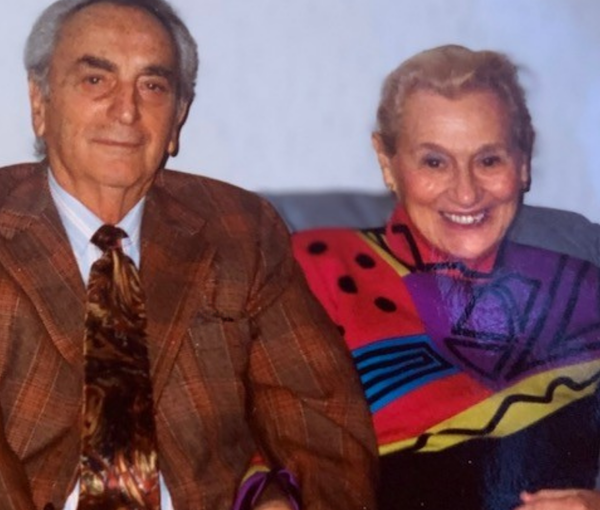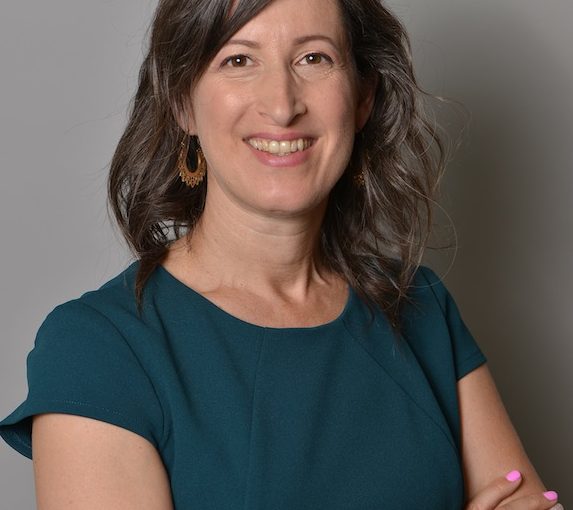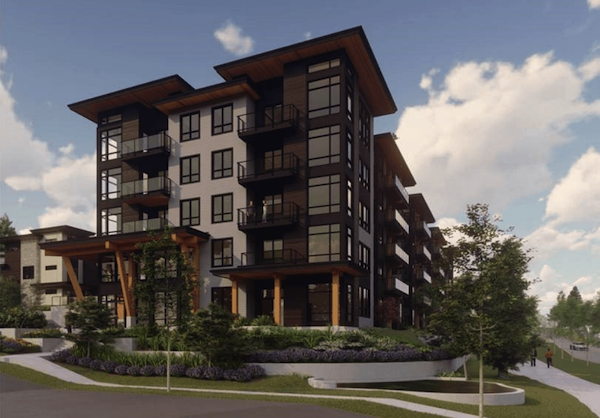Anat Gogo, executive director of Tikva Housing Society, speaks at the opening of Susana Cogan Place, Sept. 13, 2023. (photo by Alina Ilyasova)
Tikva Housing Society’s annual fundraising campaign starts March 3 and runs to March 9. While the society has increased its capacity over the years, the demand for its services continues to outpace its resources.
“The need for affordable housing within the Jewish community remains urgent, with 691 people currently on the Jewish Housing Registry, which Tikva maintains in partnership with Jewish Family Services,” Anat Gogo, executive director of Tikva Housing Society, told the Independent. “Among those on the registry, there are 103 families, which includes a total of 179 children who are currently without stable homes.”
This is the case, despite Tikva Housing having expanded its reach and impact within Vancouver’s Jewish community.
“While rental prices have started to stabilize after two years of unprecedented increases, affordability remains a pressing issue, and the need for Tikva’s services continues to grow,” said Gogo.
Currently, Tikva manages 168 housing units and provides stable housing and financial support to 374 individuals – 260 adults and 114 children – across seven properties and through its Rent Relief Program, said Gogo.
“To better support tenants and provide more direct management, Tikva has brought property management in-house for two of its properties,” she added. “This recent change is in addition to two other sites that are managed in-house and three properties where we provide tenant-relation services.”
Tikva recently raised the maximum Rent Relief Program subsidies from $750 to $828 per month for individuals and couples, and from $1,200 to $1,330 per month for families.
“This increase is in alignment with Canada Mortgage and Housing Corporation guidelines, which define the average rents in Metro Vancouver,” explained Gogo. “Our passionate and dedicated team continues to grow, and we have brought on new staff to ensure our tenants receive the support they need. We’ve also enhanced our volunteer board and committees made up of professionals with expertise in real estate, development, finance and the nonprofit sector.”
This year’s fundraising campaign aims to raise $100,000 to help address the growing housing affordability crisis, said Gogo, noting, “The challenge of affordability is not limited to low-income families. Increasingly, two-parent households that were once able to manage market rents are now struggling to keep up. There is also an ongoing need for affordable housing close to Metro Vancouver’s Jewish amenities and community resources.
“Rising costs, financial instability and security concerns due to rising antisemitism have contributed to a growing number of community members reaching out to Tikva Housing for housing options,” she said. “This campaign is an opportunity for our community to come together and ensure that more individuals and families have access to safe, stable and affordable housing.”
Since 2011, Tikva’s Rent Relief Program has helped hundreds of community members facing temporary financial crises stay in their homes, said Gogo. “Expanding this program is the primary focus of our annual fundraising campaign, as it provides urgent, critical financial assistance to individuals and families who are paying market rent but are at risk of losing their housing due to unexpected financial hardship.”
Both the Rent Relief Program and Tikva’s properties are at maximum capacity.
“The only way Tikva can address our community’s housing insecurity is through donor generosity,” said Gogo. “Donations are crucial to help us achieve our mission to provide access to innovative and affordable housing solutions.”
To support Tikva Housing Society’s annual fundraising campaign, visit tikvahousing.org or call 778-998-4582.

